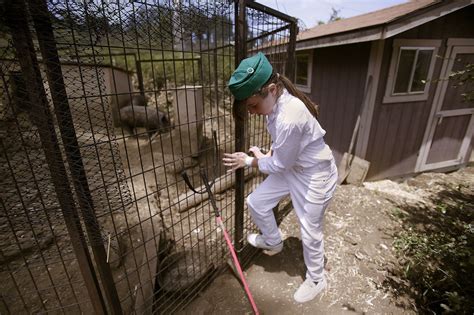Protecting Your Livestock Without Harming Mountain Lions: A Comprehensive Guide
Mountain lions, also known as cougars, pumas, or panthers, are magnificent creatures playing a vital role in their ecosystems. However, their presence can sometimes lead to conflict with livestock owners. The key is to find solutions that protect your animals without harming these apex predators. This guide explores effective strategies for minimizing livestock predation while ensuring the mountain lion's safety and well-being.
Understanding Mountain Lion Behavior
Before implementing any preventative measures, it's crucial to understand mountain lion behavior. They are typically solitary, elusive animals, primarily hunting deer and other ungulates. Attacks on livestock are often opportunistic, driven by factors like hunger, ease of access, or a lack of natural prey. Understanding their hunting patterns is the first step in effective protection.
What attracts mountain lions to livestock?
Mountain lions are opportunistic hunters. Easy access to prey is a major attractant. This includes livestock that are poorly protected, or easily accessible due to inadequate fencing or lack of proper herding practices. Another key factor is the availability of cover near grazing areas, which allows the mountain lion to approach undetected.
How do mountain lions hunt livestock?
Mountain lions are ambush predators. They prefer to attack from concealment, using their stealth and agility to take down their prey. This means that securing livestock at night, when mountain lions are most active, is paramount.
Non-Lethal Livestock Protection Strategies
Numerous non-lethal methods can significantly reduce the risk of mountain lion predation without harming the animals. These strategies focus on deterring mountain lions from approaching livestock in the first place.
Improving Fencing and Enclosure
Strong, well-maintained fencing is your first line of defense. Consider using:
- High fences: Fences should be at least 8 feet tall, ideally taller, to prevent mountain lions from jumping over.
- Secure gates: Gates must be securely latched and regularly inspected for weaknesses.
- Burying fence: Burying the bottom of the fence several inches underground prevents animals from digging under.
- Electric fencing: Adding an electric fence can further deter mountain lions.
Livestock Management Practices
Responsible livestock management practices are critical. This includes:
- Guard animals: Animals like llamas, donkeys, or even large dogs can act as effective deterrents. Their presence and alertness can warn of approaching predators.
- Proper grazing management: Avoid leaving livestock unguarded, especially at night or in areas with dense cover. Rotate pastures to prevent overgrazing and minimize the attraction to one area.
- Night pens: Securing livestock in well-lit and secure enclosures at night drastically reduces the risk of attack.
Deterrents and Repellents
Various deterrents and repellents can be used to discourage mountain lions from approaching:
- Motion-activated lights and sprinklers: These startle and scare away approaching animals.
- Noisemakers: Radios, bells, or other noisemakers can create a disruptive environment that discourages mountain lions.
- Scent deterrents: Some commercial products claim to deter mountain lions through unpleasant scents. Their effectiveness varies, so research is essential.
When to Contact Wildlife Authorities
Despite preventative measures, livestock losses may still occur. If you suspect a mountain lion attack, contact your local wildlife authorities immediately. They can assess the situation, investigate, and provide guidance on appropriate next steps. Never attempt to confront a mountain lion yourself.
What should I do if I encounter a mountain lion?
If you encounter a mountain lion, make yourself look large, make noise, and slowly back away. Never run, as this may trigger a chase response. If attacked, fight back aggressively.
Are there any lethal control methods for mountain lions?
Lethal control methods should be a last resort and only used under strict guidelines and with the authorization of wildlife management agencies. These methods should be employed only when non-lethal strategies have proven ineffective and livestock losses are significant. Such actions require a thorough understanding of the local regulations and ethical considerations.
By implementing these strategies and understanding mountain lion behavior, livestock owners can effectively protect their animals while ensuring the continued survival of these magnificent creatures in their natural habitat. Remember, coexistence is key. Effective protection requires a multifaceted approach combining preventative measures, responsible management, and cooperation with wildlife authorities.

